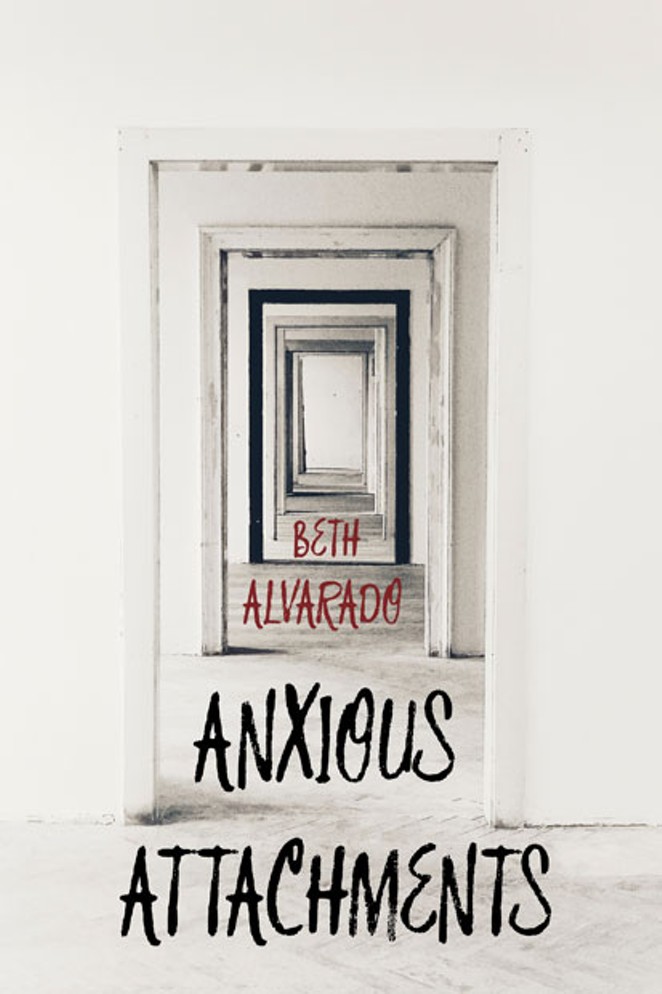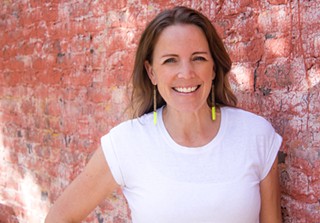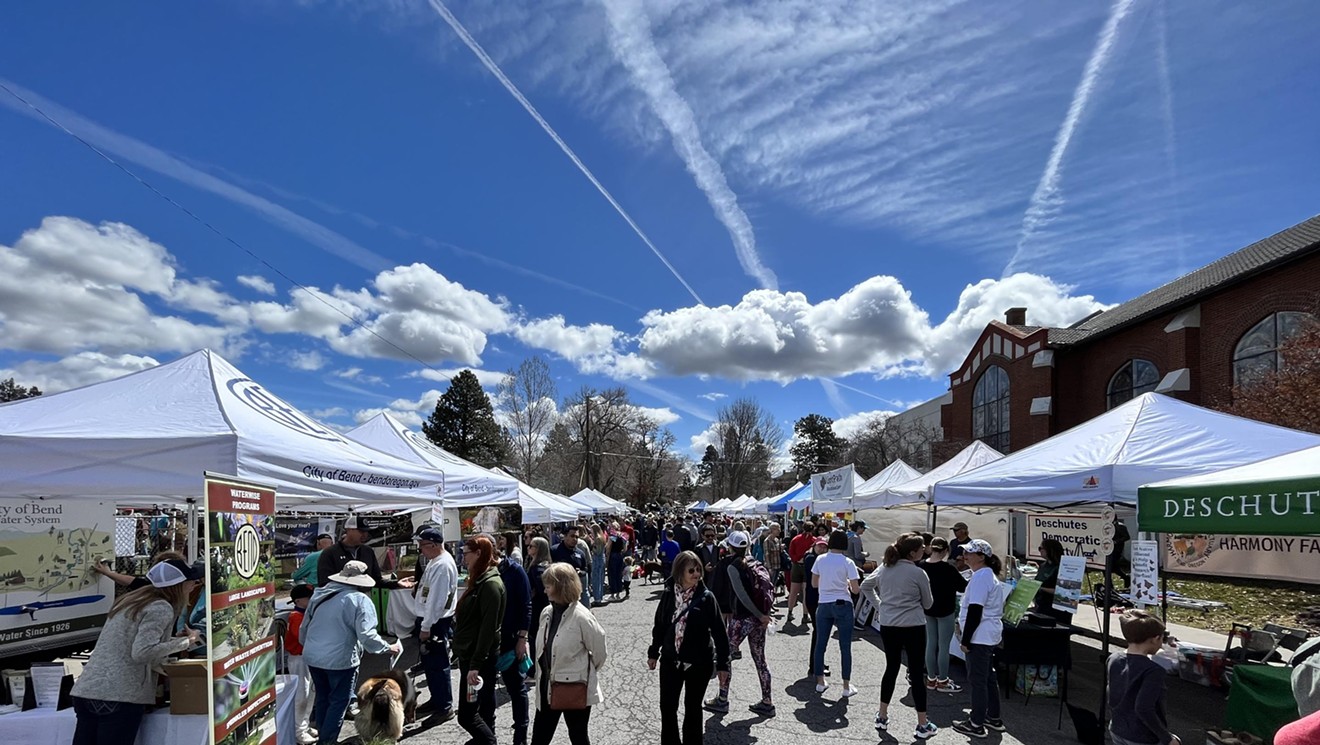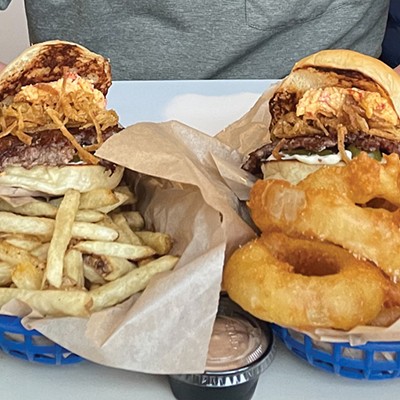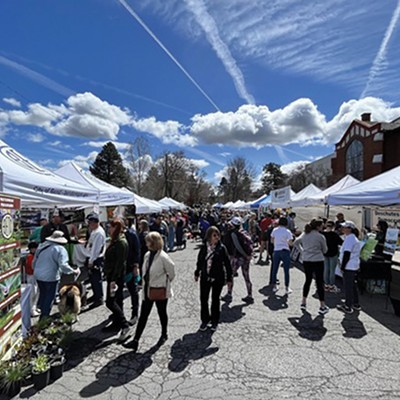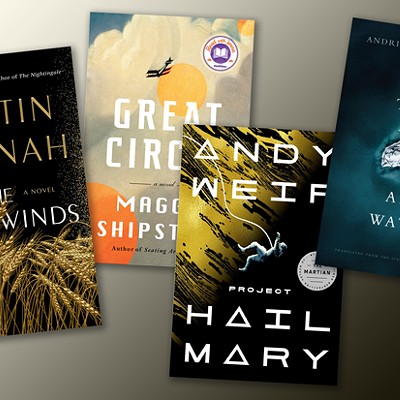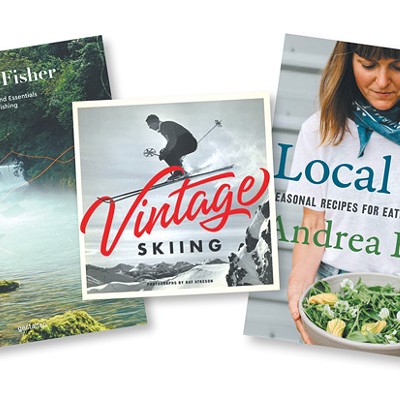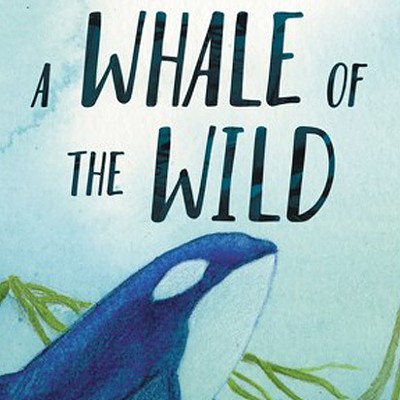Beth Alvarado, author and writing instructor at OSU-Cascades chats about her recent win in the Oregon Book Awards
In late June, Beth Alvarado, author and faculty author at OSU-Cascades, won an Oregon Book Award in the Creative Nonfiction category for her book, "Anxious Attachments." In this interview with the Source Weekly, she talks about kicking heroin, coaching writers, taking care of the dying and more.
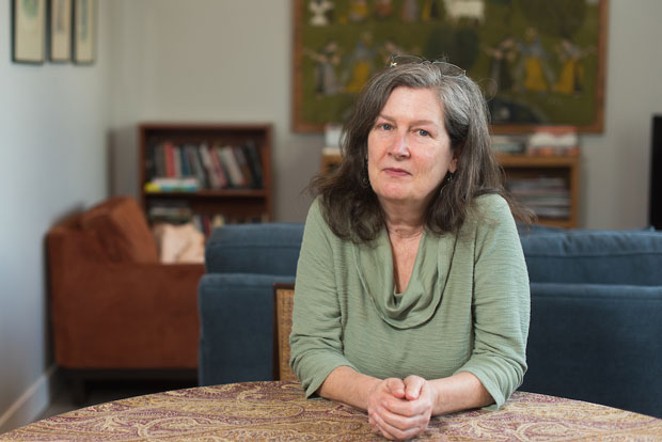
Source Weekly: Briefly describe the book for those not familiar.
Beth Alvarado: These fourteen essays are about those moments when we realize how precarious life is. In them, much like in the current pandemic, the crisis is personal but larger than any one person or family. For instance, in one essay, my husband's death is the lens through which I see the water pollution that also contributed to the deaths of so many others. In another, during the wildfires here in Bend a few years ago, I'm helping my daughter with twins who will not sleep and so, in the haze of smoke and sleep deprivation, taking care of infants is implicitly compared to taking care of nature. One of the main themes, I think, is the way that the personal is always in tension with larger forces.
SW: The book largely takes place in the American Southwest. How does that landscape factor into how you approached the book? Are there parallels or differences in the landscape of Central Oregon that helped you as you crafted this work?
BA: Landscape is really important to me as a writer. The Sonoran Desert is an extreme environment, where people die crossing without water every year. It is also, at least in Tucson, extremely beautiful. Bend may seem lush in comparison, but only because of irrigation. During that summer of wild fires, I began to realize that the high desert is also a precarious environment. I looked around and saw issues of sustainability, especially as they're related to drought and water-usage. I would say that my awareness of the fragility of human life—and of the environment—comes from living in the desert, both in Arizona and here.
SW: In a summary of the book, you describe how "Most of these essays are about the opposite poles of life—birth and death—about quitting heroin when I found I was pregnant, about the struggle of caring for premature infants and of tending to the dying." Can you share a bit more about that story of pregnancy you mention, and also talk a bit about the notion of opposites as they relate to storytelling?
BA: I became the person I am when I quit doing drugs and married into my husband, Fernando's, family. Had I not gotten pregnant almost immediately, who knows if we would have stayed clean? Probably, we would have relapsed, as many do, but instead we agreed we would stay clean for at least the duration of the pregnancy and then, if we started using again, we would give the baby to his mother. Of course, I don't remember ever asking her! We just assumed she would be OK with it. As far as writing about it: a pregnant addict is the perfect metaphor for someone who is pulled between life and death. Addiction, to whatever substance, is the ultimate solipsism: no one else matters much; your body doesn't matter; the future doesn't exist. But pregnancy is the future living within the present. It requires that you put someone else first. You become hyper aware of your body because someone else is kicking around inside of it. The notion of opposites is useful, then, to writing, because it tends to throw things into high relief so that you can see the conflicts and the paradoxes.
SW: In addition to writing, you also teach writers in the low-residency MFA program at OSU-Cascades. What about writing can be taught, in your experience? What do you struggle with trying to teach writers, in the realm of what can't be taught?
BA: What you're teaching, really, is a habit of mind, to look at writing analytically, as a writer; at how things are communicated, not just what. The craft. You can broaden students' exposure, which is really important. And I think there are ways to help students tap into those subjects that mean the most to them; you can encourage them to take emotional and intellectual risks—and that's where the exceptional work is going to come from. I know people say that the only thing you can teach is craft, but I think you can also teach people to dig deep. You can recognize what they already do well and teach them ways of nurturing it. You can teach that writing is a practice, you need to give them the tools so they can continue to teach themselves, and you need to encourage them to support one another as writers.
SW: What does being awarded an Oregon Book Award mean to you? What are your thoughts on awards given to authors in general?
BA: It was an honor for the book to be nominated because the other books were all of such high quality—and a surprise to win. Any one of the nominees, in my opinion, was worthy of the award, which is why awards can seem arbitrary. If there had been different judges, maybe someone else's book would have won. So even though I recognize that, I was so pleased. It was a real validation of my writing and of my subject matter: that a book about ordinary life, the life we all live, taking care of others, helping people when they're ill and dying, thinking about our connections to politics and history—that that could win an award! And that they would say the book was a "master class in the essay!" Wow! And, also, I am so happy for Autumn House Press. They had several books nominated for awards, big awards like this one, and they deserve the recognition. In my case, they took a good book and helped me make it into an award winner.
Alvarado read from her work in a Literary Arts presentation that announced the winners of the 2020 Oregon Book Awards. Due to COVID-19, the show was presented as a podcast rather than an in-person event, and is available at: literary-arts.org/archive/2020-oregon-book-awards/. Her newest book, "Jillian in the Borderlands," comes out in October. Alvarado said through Oct. 20, she's donating her royalties and commission to the U.S.-Mexico border-area humanitarian aid organization No More Deaths. The book is available at: blacklawrencepress.com/books/jillian-in-the-borderlands/.

